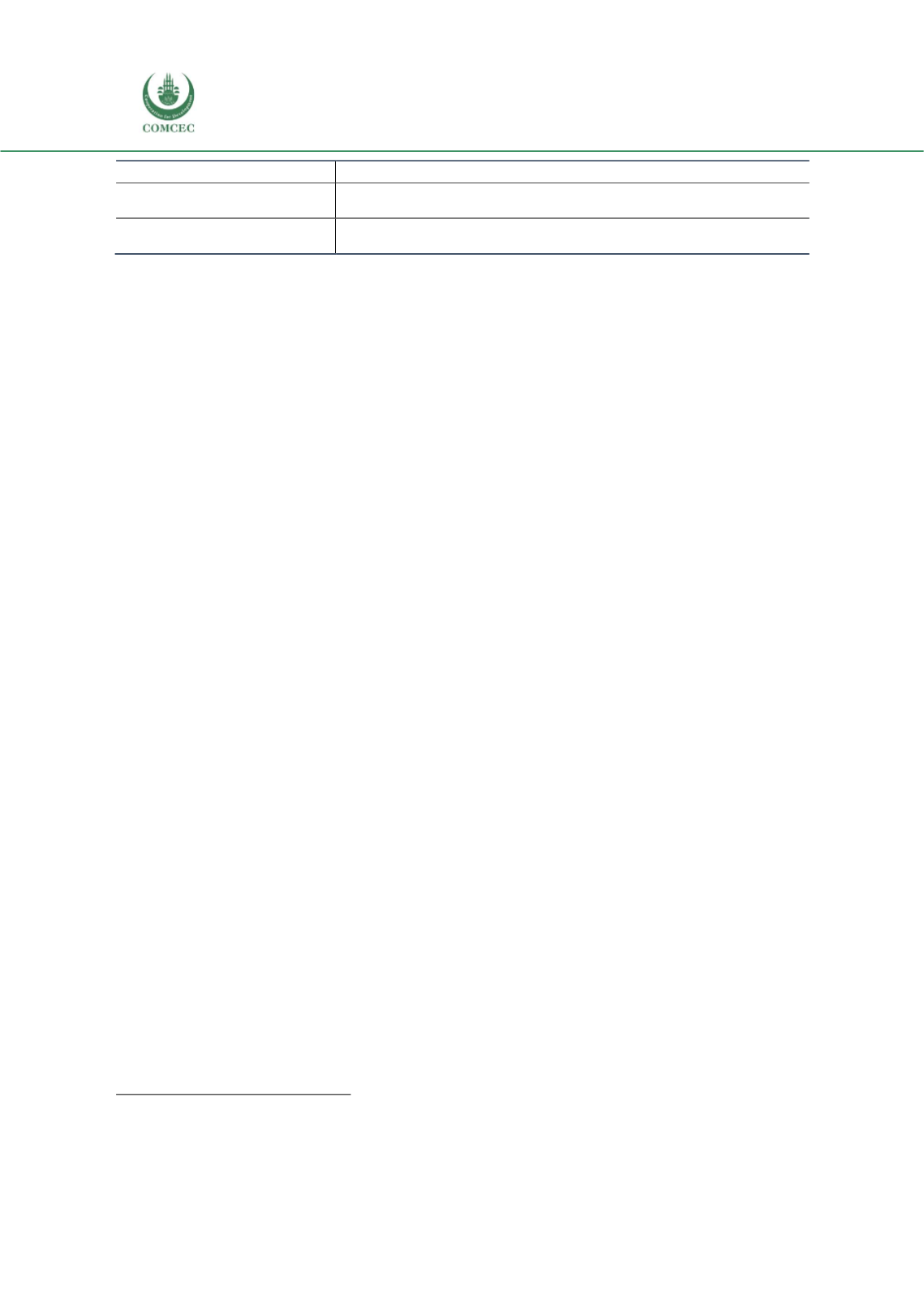

Analysis of Agri-Food Trade Structures
To Promote Agri-Food Trade Networks
In the Islamic Countries
70
Products
Top 10 import sources
Milk and milk products other
than butter or cheese [022]
New Zealand, Australia, India, Germany, Denmark, United States, Thailand,
Ukraine, Netherlands, and Czech Republic
Fruit and nuts (not including oil
nuts) [057]
China, India, United Arab Emirates, South Africa, Indonesia, Thailand,
Brazil, Malaysia, Uganda, and Egypt
Source: UN Comtrade retrieved through WITS.
Market structure and networks of Agricultural Imports
Similar to the agricultural import items, Bangladesh’s import partners are also highly
concentrated and the top 10 import sources provided around 75%of country’s total agricultural
imports during the last decade. These top 10 sources of Bangladesh’s Agricultural imports
during 2005-2015 period were Indonesia, India, Brazil, Argentina, Malaysia, Canada, Australia,
the United States, Uzbekistan, and Singapore
22
.
From a network perspective, Table 18 shows that import sourcing is more varied geographically
than export supply, which was relatively concentrated. For cotton, Bangladesh is reliant on the
major international suppliers, with Singapore’s case likely representing mis-classified re-
exports from another origin. Vegetables and cereals primarily come from large agricultural
exporters like Australia, Brazil, and Canada, as well as regional partners like Pakistan and India.
OIC member countries are important sources of Bangladesh’s agricultural import (Figure 37),
placing three member countries, namely Indonesia, Malaysia and Uzbekistan in the top 10
import partners. While Indonesia is traditionally is an important import source of agricultural
products for Bangladesh, recent upsurge of imports of Palm oil and Soya bean oil from Indonesia
placed the country at the top of Bangladesh’s agricultural import partners. Other important
agricultural products imported from Indonesia are Animal and vegetable oils; fats and waxes
[Rest of 4]; Fruit and nuts (not including oil nuts); Oil-seeds and oleaginous fruits; and Spices,
showing important growth in recent years. FromMalaysia, Bangladesh mainly imports Palm oil
and Cotton, whereas Animal and vegetable oils, fats and waxes; Edible products; and Milk and
milk products other than butter or cheese are showing encouraging growth trend. Cotton is the
single important imports from Uzbekistan which however showing decreasing trend in recent
times.
22
This figure likely includes re-exports from Singapore, as the country’s own agricultural production capacity is limited due
to lack of arable land.
















